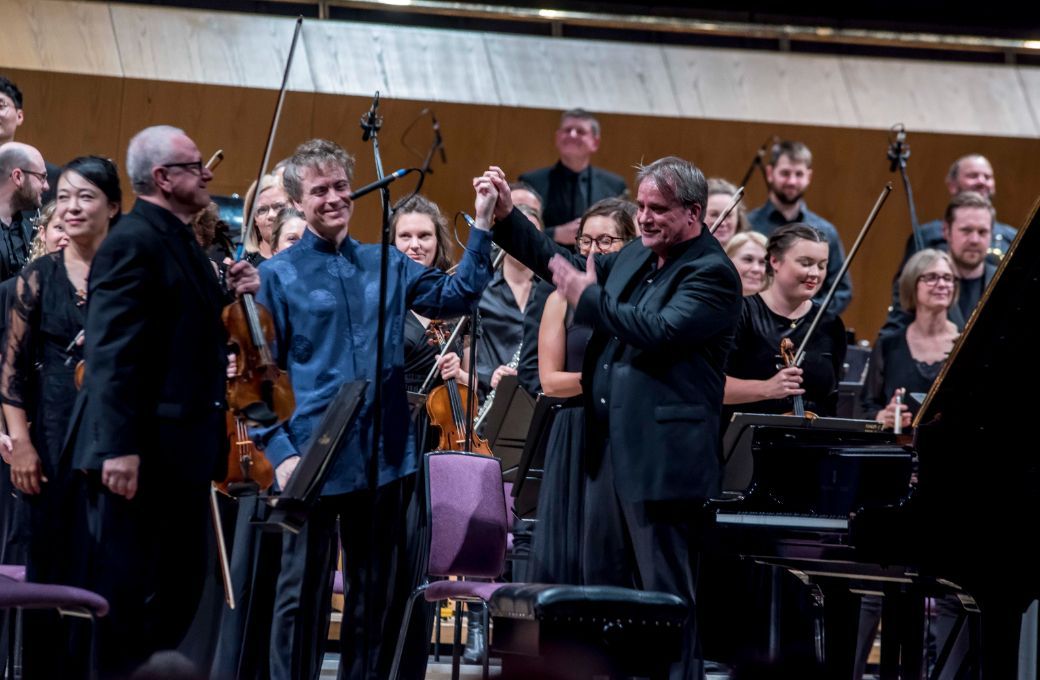John Storgårds kicked off the new season with his BBC Philharmonic with a programme defined by a blood-and-thunder approach to Beethoven and Holst, elegantly accompanied by Grace-Evangeline Mason’s Ablaze the Moon.

Premiered by the same orchestra at last year’s Proms, the Ablaze is a six-minute realisation of American poet Sara Teasdale’s 1930 poem Tonight. As an accompanying preamble immediately before Holst’s The Planets, it could scarcely have been more appropriate and here demanded to play the same role in the future. Mason uses an expansive, convincingly celestial canvas to depict Teasdale’s moon hanging in the night sky, with gleaming upper string playing neatly complemented by golden brass. Together with some evocative percussion effects – notably tam-tam played with wire brushes and bowed with a cello bow – made for cinematic music at its most graphic. This is a work I would gladly hear adopted into the repertoire.
The Planets followed with just a brief pause for some auxiliary wind and percussion reinforcements to assemble. Storgårds’ view of the piece was to wring out every kilogram of raw energy. Mars can rarely have been more brutal, and an uproariously riotous Uranus was the undoubted climax of the piece. There was great beauty too, notably from guest Principal Horn KyuSung Lee in Venus, and those curious visitors to the woodwind section, the bass oboe and alto flute.
That said, this was not the neatest or liveliest of Planets. Tempos were generally relaxed and highly malleable, with many original nuances of rubato applied. These were interesting enough, but one sensed that more rehearsal time would have cleaned up some slightly scrappy transitions, and Storgårds’ energetic podium present no doubt contributed to a brass misfire in one place. Jupiter was monumental rather than jolly, with some capricious tempo changes and slamming-on of brakes causing problems in places. The offstage Hallé Choir sang Neptune with great beauty and control, though the open doors of the choir stalls were closed rapidly enough to execute a rather swift retreat. Nonetheless, this was huge fun, and was clearly hugely appreciated by the audience.
In the first half, Paul Lewis had tackled Beethoven’s imposing C minor Piano Concerto with an attractive mix of thundering power and exquisite softness. With modern instruments and hearty string vibrato, this was unapologetically big-boned Beethoven, with Lewis matching this with a cataclysmic, almost violent first movement cadenza. The soft balm of the slow movement was followed by a striking attacca to the finale, where the darkness deepened before a coda of utmost joy.
Speaking at the start of the concert with sleeves rolled up, the orchestra’s hugely impressive Director, Adam Szabo, welcomed the near-capacity audience and “Your BBC Philharmonic” with all the informality of a television cricket presenter. With this his first full season in post, one has to be excited about the orchestra’s future. It was heartening to see such a full and young audience, and even if there were more mid-piece audience comings and goings than the Bridgewater Hall stewards perhaps ought to have allowed, one suspects Szabo wouldn’t care.


